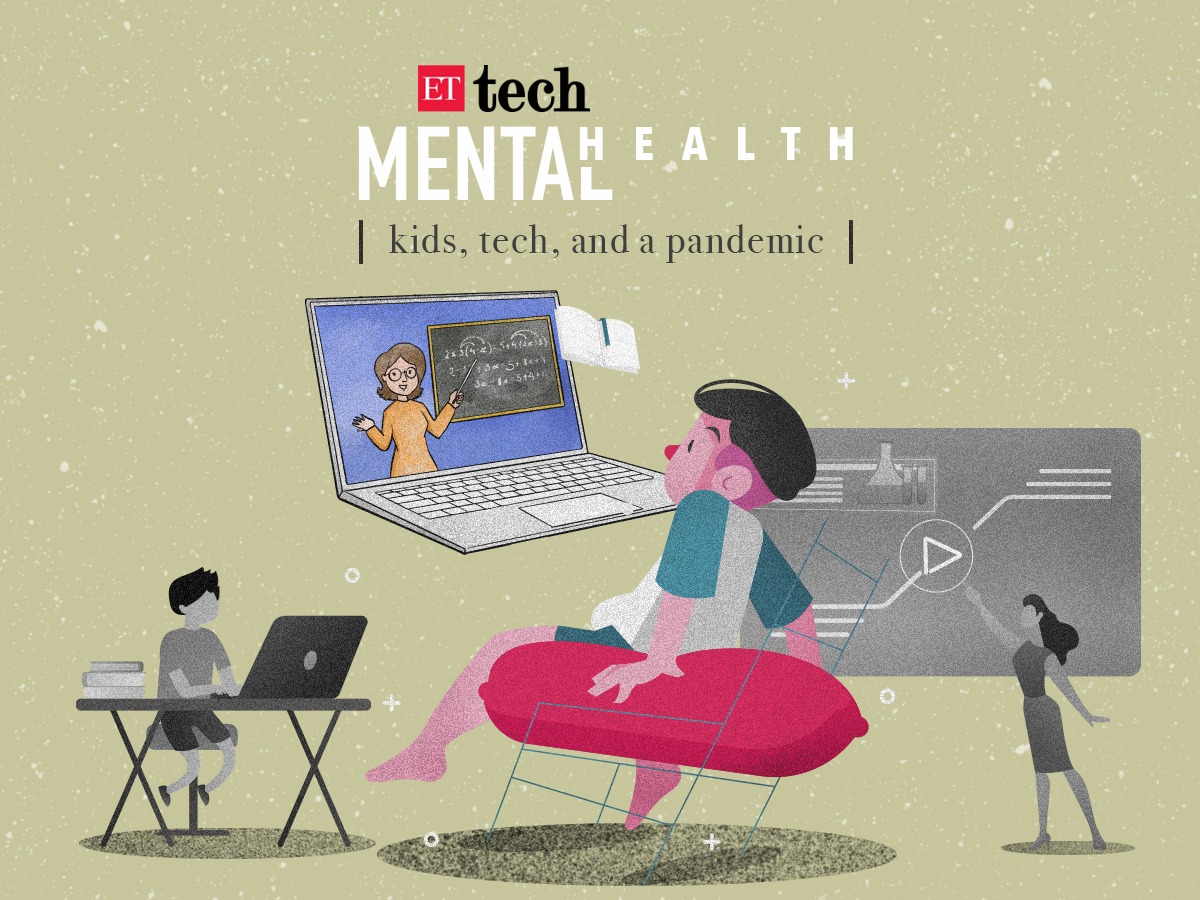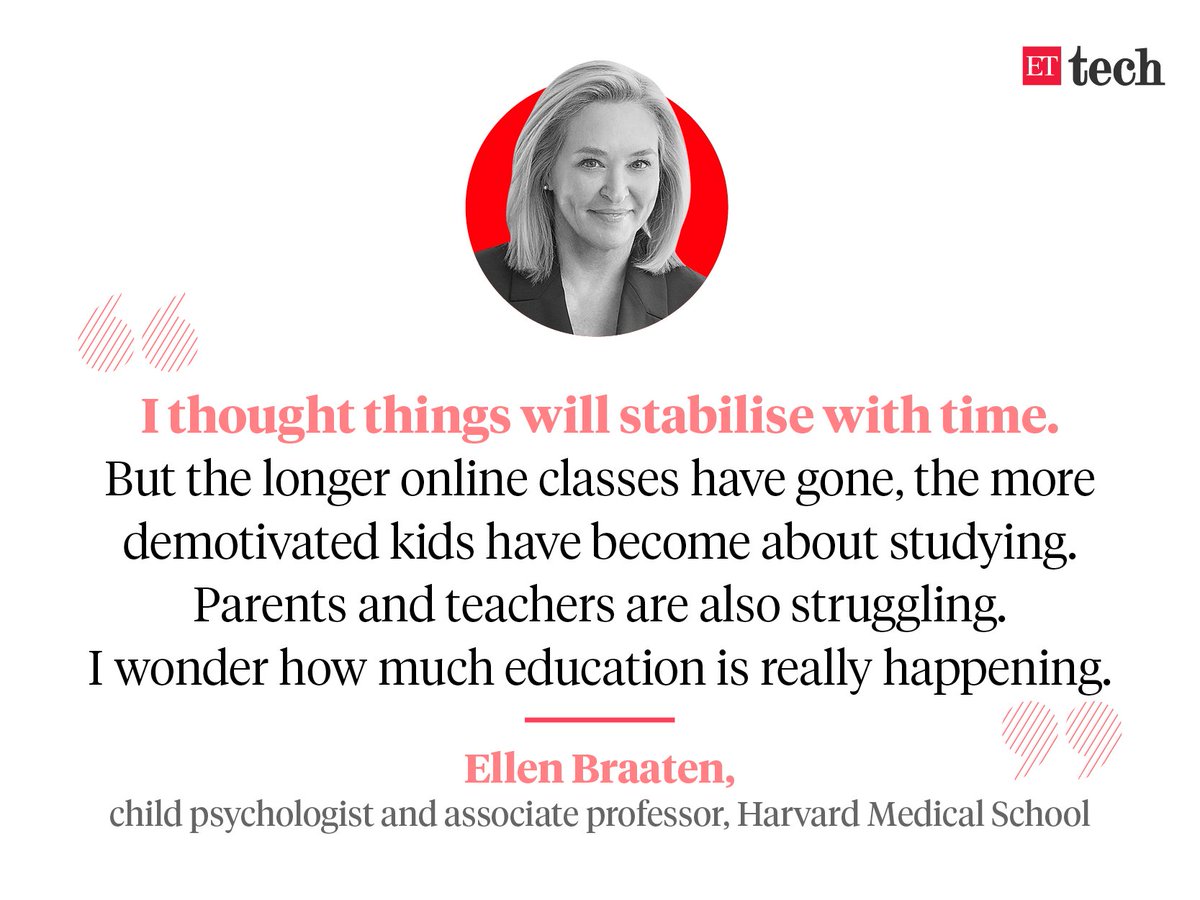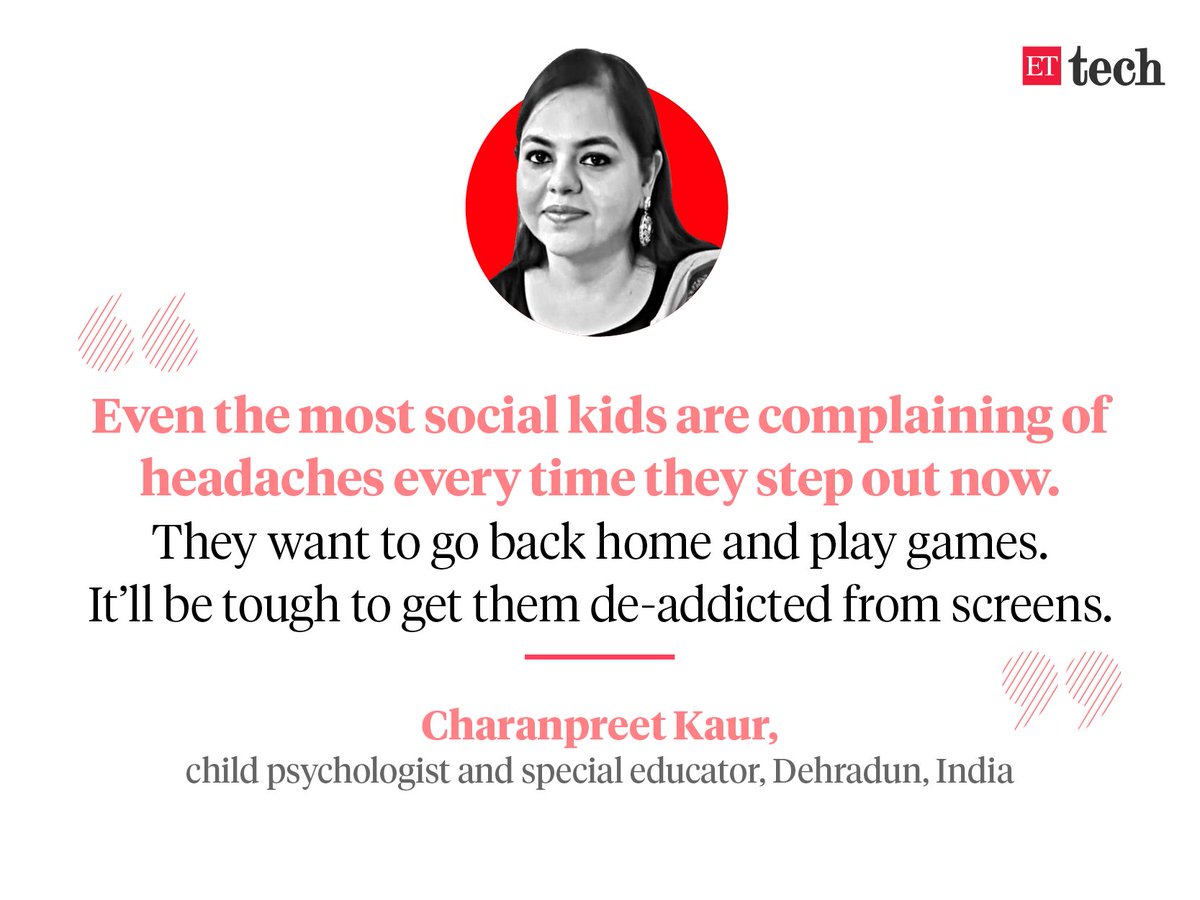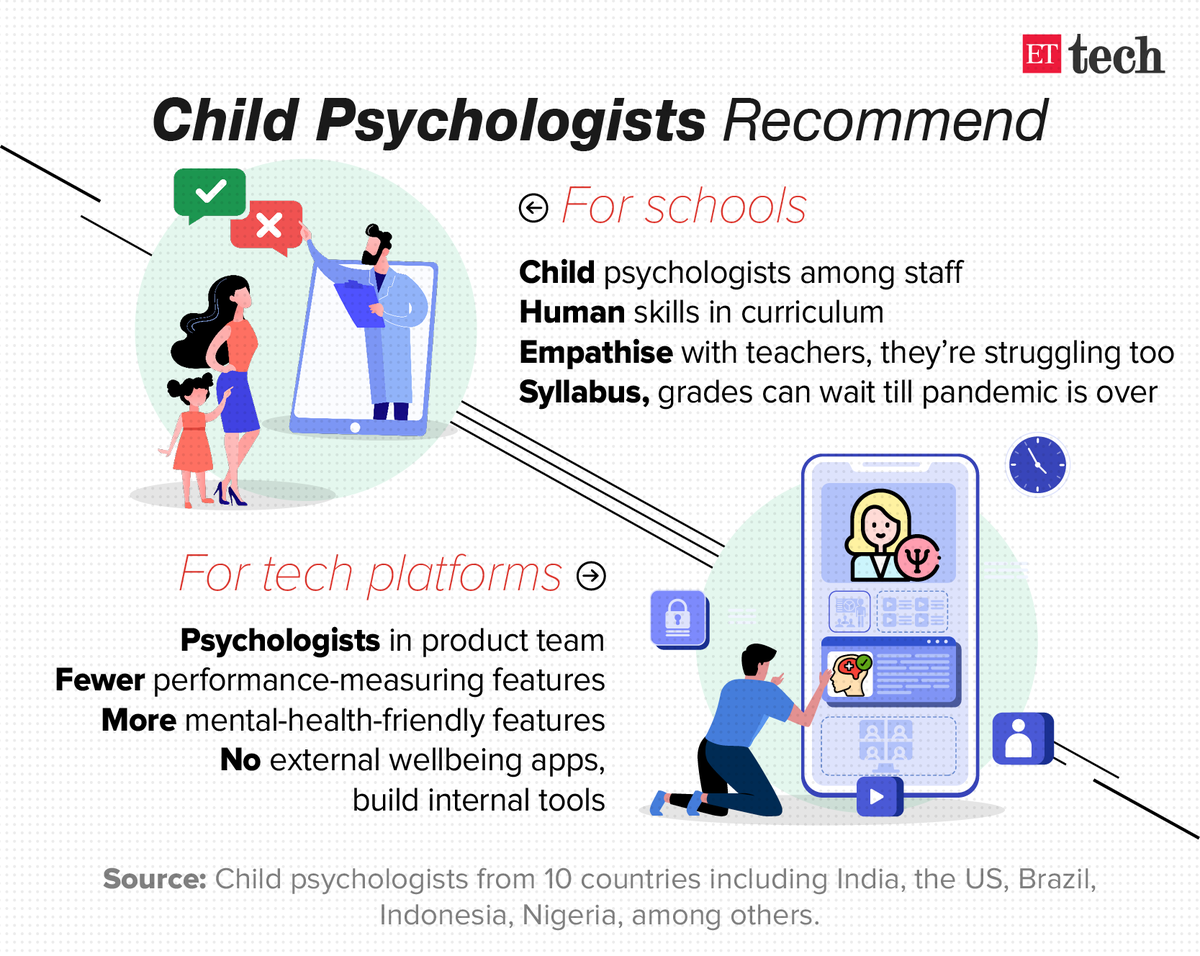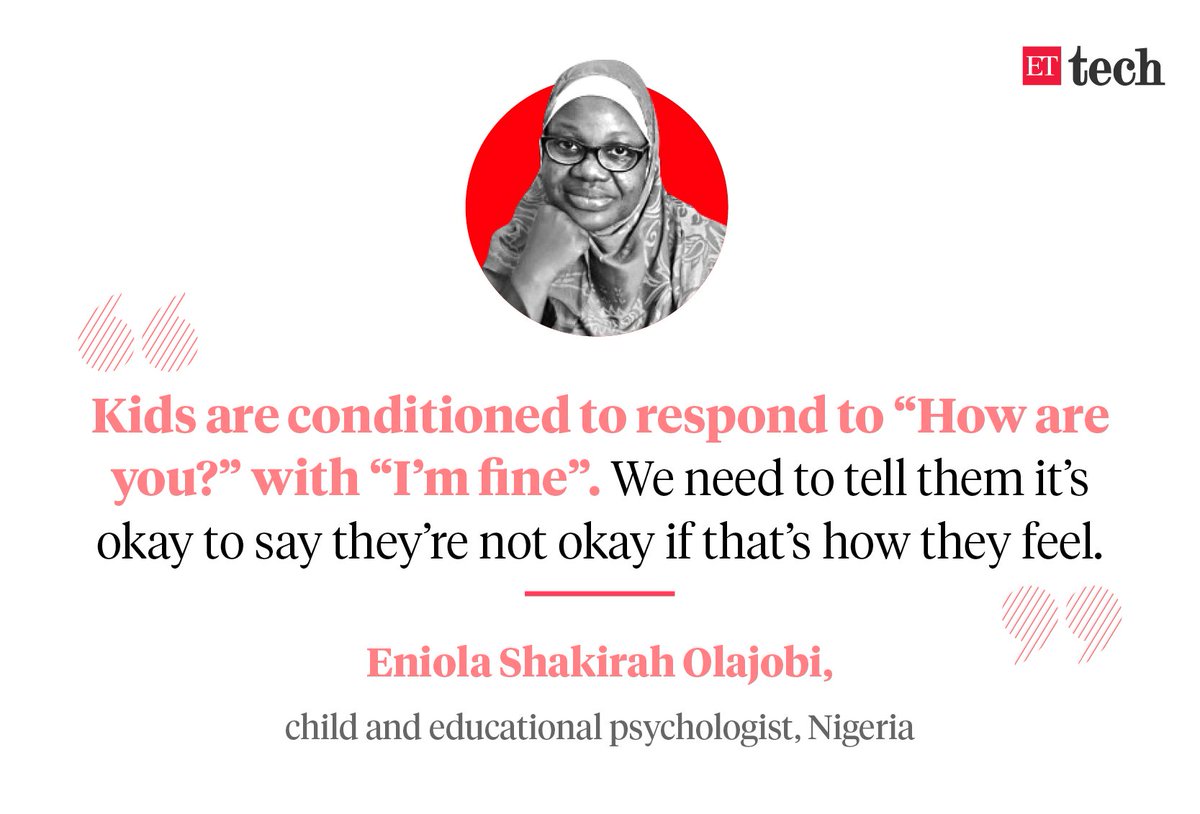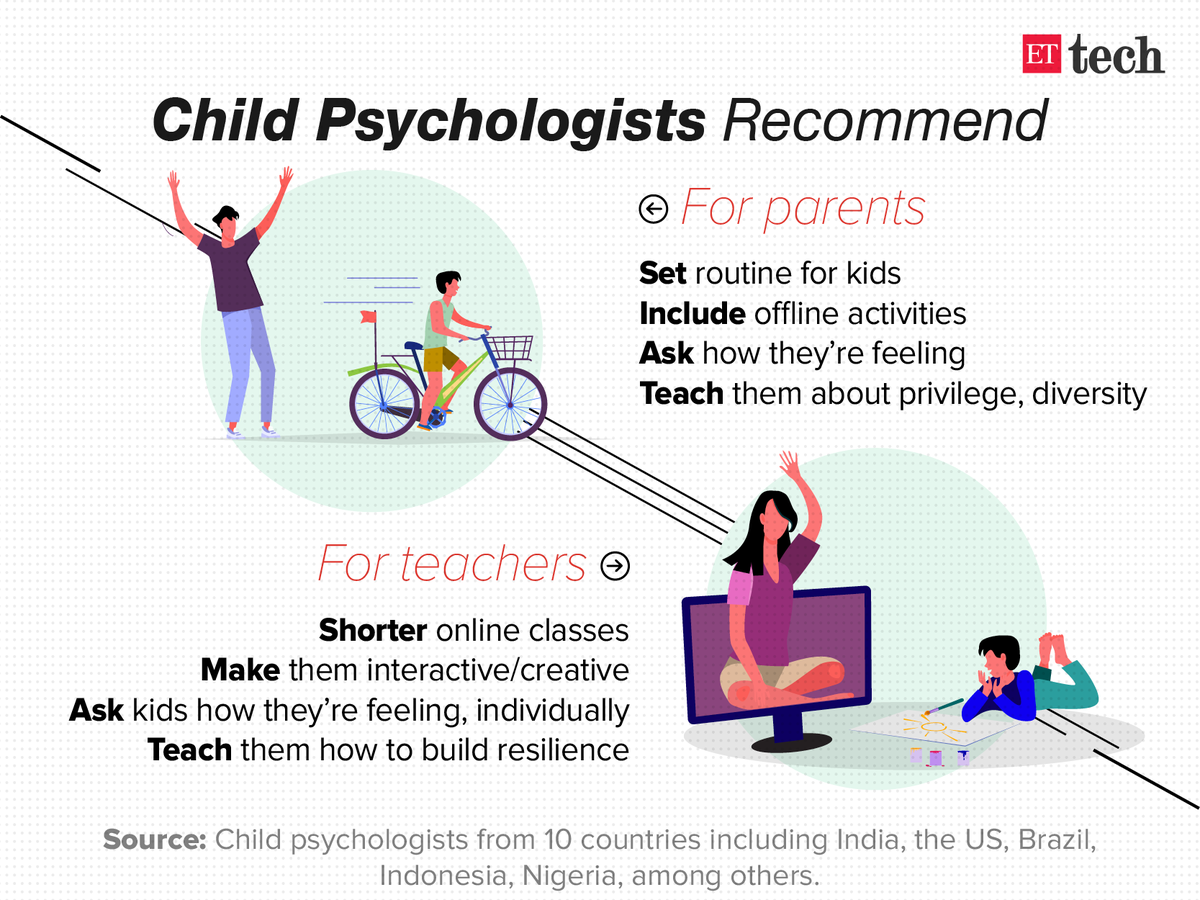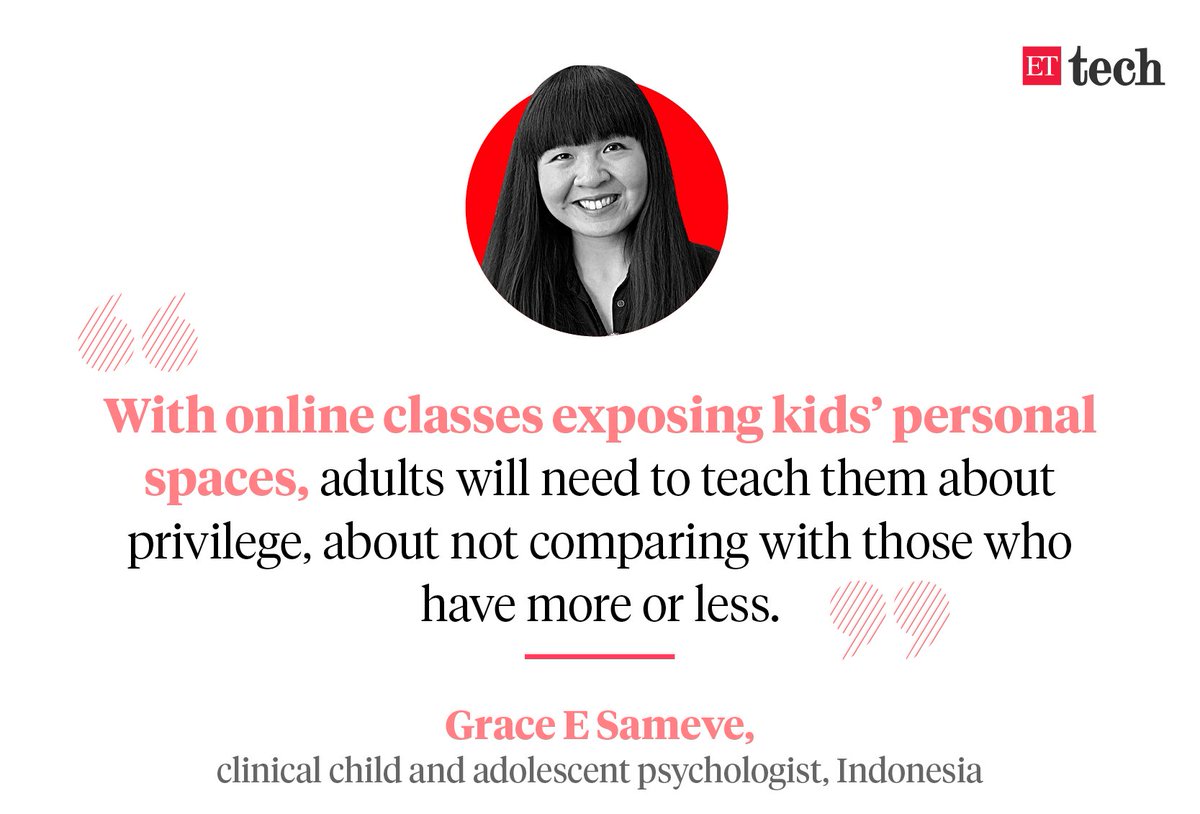Wrote about the short- and long-term mental health implications of online classes on children, and how we can do right by them going forward.
Featuring voices from India, the US, Brazil, Spain, Indonesia, Chile, Canada, Sweden, Lebanon, and Nigeria.
https://economictimes.indiatimes.com/tech/technology/kids-the-pandemic-a-mental-health-challenge/articleshow/79787590.cms
Featuring voices from India, the US, Brazil, Spain, Indonesia, Chile, Canada, Sweden, Lebanon, and Nigeria.
https://economictimes.indiatimes.com/tech/technology/kids-the-pandemic-a-mental-health-challenge/articleshow/79787590.cms
10 months into online classes, isolated from friends and all things fun that the school brought along, kids are feeling lonely, angry, and demotivated to study. Psychologists say it may not be a passing feeling. And it is worrisome
Children with social anxiety are struggling with the spotlight on them during online classes. Instagram creators are making videos on it with the intention of having fun perhaps? But YouTube has very unfunny real videos of teachers being trolled by kids during online classes.
Younger kids are missing out on basic skills like learning to read, do basic calculations, etc. Slightly older ones are showing signs of hyperactivity. They're not doing homework, switching video off and playing games online, some are even getting addicted to pornography.
Kids are acting out. “Earlier, acting out for kids meant spray-painting on public walls, for instance. With that option not available anymore, when they act out, it can be more serious, and it can jeopardise communities,” says @ellenbraaten of @harvardmed.
Doesn't help that across countries, swathes of children from underprivileged communities simply do not have access to basic internet connectivity and electronic gadgets to support education in these times because of inequality and systemic racism. https://economictimes.indiatimes.com/tech/technology/kids-the-pandemic-a-mental-health-challenge/articleshow/79787590.cms
Then there are unique challenges within communities. Eg.
1) In Indonesia, no culture of kids discussing their feelings with their parents.
2) Families of colour in the US do not talk about mental health and they're suffering more during this period, seeing racism on TV every day
1) In Indonesia, no culture of kids discussing their feelings with their parents.
2) Families of colour in the US do not talk about mental health and they're suffering more during this period, seeing racism on TV every day
Meanwhile, many countries are contemplating adopting a hybrid schooling model once the virus outbreak subsides. All the more important then that these mental health issues are addressed and attempts are made by parents, teachers, schools, tech platforms, society, to reverse them.
What can platforms do? Get CHILD PSYCHOLOGISTS on product teams. More focus on mental-health-friendly features than efficiency-enhancing ones. The latter comes to product teams naturally so will be added anyway. Also ft. reccos for schools here 
https://economictimes.indiatimes.com/tech/technology/kids-the-pandemic-a-mental-health-challenge/articleshow/79787590.cms

https://economictimes.indiatimes.com/tech/technology/kids-the-pandemic-a-mental-health-challenge/articleshow/79787590.cms
What can parents do? Firstly, talk to children about mental health and its importance. This quote from Eniola, a child and educational psychologist from Nigeria, is my favourite insight from the story. So simple, so thought-provoking.
https://economictimes.indiatimes.com/tech/technology/kids-the-pandemic-a-mental-health-challenge/articleshow/79787590.cms
https://economictimes.indiatimes.com/tech/technology/kids-the-pandemic-a-mental-health-challenge/articleshow/79787590.cms
Ultimately the onus of boosting a kid’s morale will rest on parents, teachers and, to some extent, the society at large.
https://economictimes.indiatimes.com/tech/technology/kids-the-pandemic-a-mental-health-challenge/articleshow/79787590.cms
https://economictimes.indiatimes.com/tech/technology/kids-the-pandemic-a-mental-health-challenge/articleshow/79787590.cms
Adults will have to broaden their definition of what constitutes learning for children. Most of all, they'll have to learn not to be too harsh on themselves, too.
https://economictimes.indiatimes.com/tech/technology/kids-the-pandemic-a-mental-health-challenge/articleshow/79787590.cms
https://economictimes.indiatimes.com/tech/technology/kids-the-pandemic-a-mental-health-challenge/articleshow/79787590.cms
Working on this story was an eye-opening exercise. One that revealed that there's never been a more pressing need to do right by our next generation, the future of the world.
Hope the story helps us all start a conversation around this https://economictimes.indiatimes.com/tech/technology/kids-the-pandemic-a-mental-health-challenge/articleshow/79787590.cms
Hope the story helps us all start a conversation around this https://economictimes.indiatimes.com/tech/technology/kids-the-pandemic-a-mental-health-challenge/articleshow/79787590.cms

 Read on Twitter
Read on Twitter